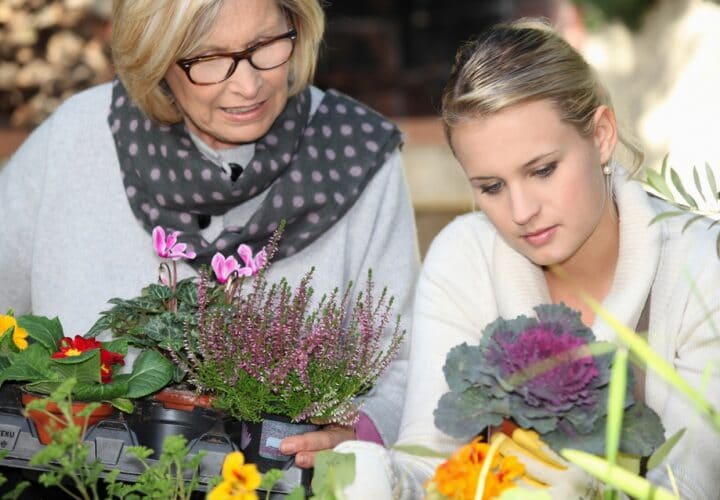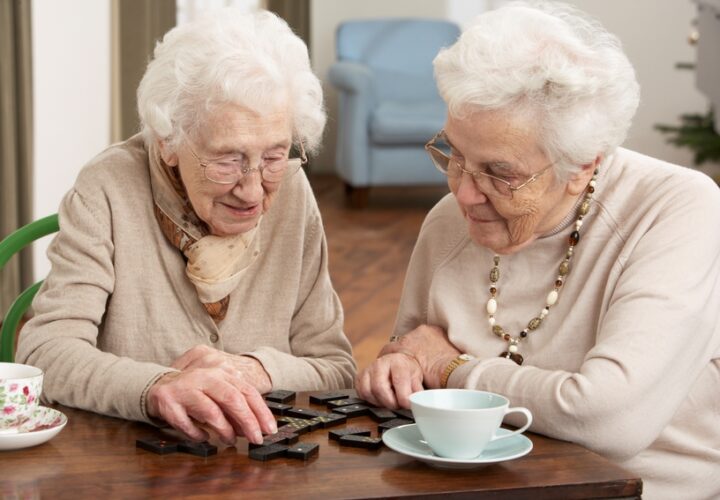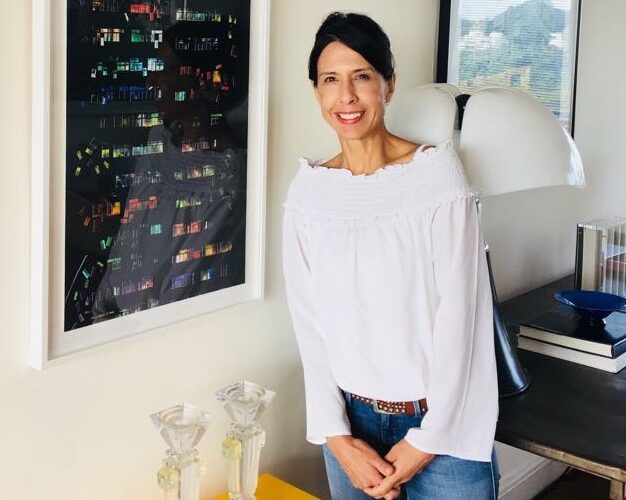Navigating a dementia diagnosis can be tough. These Alzheimer's support groups offer practical advice for those with Alzheimer's and their caregivers.
Many people living with dementia say that connecting with an Alzheimer’s support group sooner would have made their diagnosis more manageable and bearable. After a diagnosis, it may feel as if your doctor has sent you away with upsetting news and limited resources. Interacting with others going through the same experience could help prevent post-diagnosis loneliness and depression, and provide answers to commonly asked questions.
In-person support groups for people with Alzheimer’s or their caregivers can be the lifeline you need to cope. Sometimes these groups may be tough to get to, or may not meet as often as you need. That’s where online Alzheimer’s support groups come in — they provide easy, 24/7 access for people looking to talk to others directly from their living room.
Support Groups for Those Living with Alzheimer’s
From doctor’s visits, medical tests and healthcare expenses to coping with stress and isolation, navigating a dementia diagnosis isn’t easy. Although loved ones do the best they can to help, talking to others who have received a similar diagnosis and can relate to your experience can be comforting.
Dementia Mentors
After caring for his mother and father with dementia for nearly 20 years, Gary Joseph LeBlanc co-founded Dementia Mentors, an online support system that aims to help those with dementia understand that you can still live well with dementia. Those who are interested can be privately mentored by someone living with dementia for free. They can ask their mentor questions about dementia, day-to-day life or discuss shared experiences.
In addition to mentor sessions, the site offers virtual memory cafés where people living with dementia worldwide can talk to one another on a live video chat. “A memory café is a social gathering of those living with dementia. Unlike a support group where you talk and vent about the disease, this is a place for a time out,” the founders write. While the cafés are not marketed as a support group, the founders add that people are still welcome to discuss struggles they are experiencing, though the purpose of the cafés is to have fun and socialize with others. As of last year, the site began hosting 26 gatherings per month to accommodate people living in different timezones. In addition, users can visit the site’s video archive, filled with videos of people with dementia offering advice about topics like being diagnosed with early-onset Alzheimer’s or learning to communicate with others who have Lewy body dementia.
Memory People
With over 21,000 members, Memory People is an Alzheimer’s and dementia support group on Facebook that was founded by Rick Phelps, who was diagnosed with early-onset Alzheimer’s at 57 years old. In addition to those living with dementia, caregivers, loved ones and professionals are also welcome to join the group. “We don’t talk about miracle cures or false remedies here. We share about the reality of dementia and memory impairment, and through support and education we find the ability to take another step each day in this journey,” the admins write.
Recently, Rick Phelps introduced himself via a live video to the group. He says he wanted a place where he could ask questions about his diagnosis. After his diagnosis, he says he tried visiting a message board on an Alzheimer’s site, would ask a question, but get no response for several days, then couldn’t locate his question. “I thought, if this isn’t any good for me, it’s probably not good for anyone else,” he says. He started Memory People at 4:00 a.m. on Thanksgiving morning. “I had a lot of people tell me it will never work. You can’t put caregivers and patients together and I’m like, well that’s the only way it will work, as far as I’m concerned. Caregivers learn from patients and patients can help caregivers. That’s what we do on Memory People. We just talk to one another.”
Members offer support to one another and post about living well with dementia, including asking for suggestions about vacations they’d like to take with a loved one who has early-onset Alzheimer’s or sharing photos of beautiful destinations they hope to visit. Members also tackle more difficult questions, including what to do if they’re experiencing rapid weight loss or immediately after an Alzheimer’s diagnosis.
Alzheimer’s Support Groups for Caregivers
Last year, 16.3 million relatives and friends offered 18.5 billion hours of unpaid care to a loved one with Alzheimer’s or another type of dementia, an economic value of $234 billion, according to a report by the Alzheimer’s Association. Caregiving can be stressful. As Miki Klocke, who cared for her mother with Alzheimer’s, writes, “The reality of a caregiver’s situation is not talked about enough. During my 17 years as Mom’s caregiver, I was often told to ‘take care of yourself first.’ This advice seemed like a cruel joke, and I still dislike how the term ‘self-care’ is currently defined. While those outside of this experience may believe this advice sounds comforting, it’s also hard to implement.” Caregivers may benefit from speaking to other caregivers who can relate to what they are going through and share practical advice.
Alzheimer’s and Dementia Caregivers Support Chat Group
With nearly 10,000 members, this Facebook group is run by Jean O’Connor, who cared for her father with Alzheimer’s until he passed away recently. “While caring for my dad, I realized I was spending a lot of time doing research and making sure everything was done that needed to be done for him. After reading members’ questions in my group, I now realize that a lot of the information I learned may be helpful to someone else too,” she writes.
Members post questions about topics like hospice care, interacting with doctors or nurses, medication or coping with feelings of guilt. They also share photos of their loved ones and posts asking for support when a sick loved one is in the hospital. The admins emphasize that although they run a support group, it is also a chat group where caregivers are welcome to discuss topics that do not solely focus on Alzheimer’s and are encouraged to acknowledge that sometimes, “humor is a great medication for a caregiver.”
The Purple Sherpa Basecamp (Dementia Family Caregiver Support Group)
Founded by Alzheimer’s caregiver Julie Fleming, The Purple Sherpa Basecamp is a Facebook group with nearly 5,000 members for those who want to discuss what they’ve “learned as care-partners, to vent and support one another, and to break the silence that leaves so many caregivers feeling alone.” In addition to the Facebook group, caregivers can join nearly 71,000 followers on The Purple Sherpa Facebook page or visit Fleming’s website.
Fleming, who lost her father to Alzheimer’s, became his primary caregiver nearly a decade ago. “After a trip to the ICU, Daddy’s doctor gave us the diagnosis, a prescription for Aricept, and a request to return in six months,” she writes. Fleming felt as if she was given no concrete advice on how to be a caregiver. She adds that although people who suggest caregivers take a “bubble bath or weekend getaway” mean well, the advice is impractical for most caregivers, who often do not get even ten minutes to themselves. While caring for her father, she grappled with difficult emotions, including grieving the living. “What does it say that I feel relief about the death of my beloved father? It feels monstrous, but it says that I saw his suffering, that with deep empathy I felt that suffering over a period of years, and that I am grateful that he was spared more suffering,” she writes.
While there are plenty of online support groups for caregivers, Fleming says she created her non-profit organization The Purple Sherpa for caregivers who want advice on “real-world” experiences and “one-step-at-a-time” advice. Members in her Facebook group ask questions ranging from whether others have given their loved ones CBD oil or whether they should install motion sensor cameras. They also share photos of happy moments with their loved ones.
Those living with dementia and their caregivers can also join our Facebook group, Being Patient: Brain Talks, for information on live talks with experts in brain health or those who are living with dementia.






I am caregiver to my husband who has Alzheimer’s. I cannot attend support groups because my husband has anasognosia and hits the ceiling every time I make any reference to his symptoms. He shadows me so I cannot go anywhere without his wanting to join me. He was an accountant and still thinks he can be in charge of bills, etc. I have had to double and triple check our finances to assure that he has not gotten us into financial trouble. I just need to vent and get advice about this situation. My family lives far away. I am on my own.
Hi, I can totally understand. My husband also wants to still be in charge of paying the bills. He has paid the late several times. Now I get the mail before he does and try to pay them before he has even noticed they are due.
In addition to the above, several organizations conduct support groups via phone. It would be worth the time to check the Alzheimer’s association in your city, along with the Alzheimer’s Federation and Caring Kind if you are located in NYC,
As a caregiver for my husband’s, I really have alot of questions and concerns for now and the latter.
I am exhausted, tired and Ill myself, I love my mother but I am so frustrated by the lies and if I try to make sense of course it doesn’t work. It is the worst thing to ever happen to me. I am alone in this.i am also tired of seeing smiling faces on ads! What good am I? I will never,ever be the same,. I am almost giving up.this is too much. Too much. I know it could be worse,but that is others situations. Some one could help simply by going to lunch,taking the trash. I am sick of trying. And all the changes everyday there is a problem” i “ have to take care of, I am almost at the end of my rope.
I hear you Ruth. I am in a similar place – I dread getting up in the morning. I feel angry and then guilty for losing my patience.
I care for my husband in mid stage Alzheimer’s. He is unable to communicate effectively, follow directions, use the bathroom reliably etc. I feel at the end of my rope too.
I have been advised to get help but for some reason I am dragging my feet. It is a very confusing time.
Where are all of these online support groups I keep on hearing about?!?
I don’t want to join a Facebook group. I want to be able to ask a group of peers, who I know, questions.